Filter by
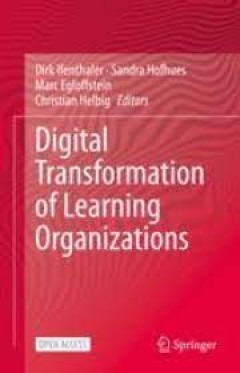
Digital Transformation of Learning Organizations
This open access volume provides insight into how organizations change through the adoption of digital technologies. Opportunities and challenges for individuals as well as the organization are addressed. It features four major themes: 1. Current research exploring the theoretical underpinnings of digital transformation of organizations. 2. Insights into available digital technologies as well a…
- Edition
- -
- ISBN/ISSN
- 978-3-030-55878-9
- Collation
- -
- Series Title
- -
- Call Number
- 370 DIR d
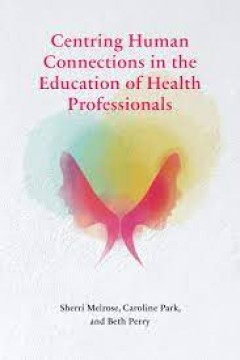
Centring Human Connections in the Education of Health Professionals
Centring Human Connections in the Education of Health Professionals equips educators working in clinical, classroom, and online settings with a variety of teaching strategies that facilitate essential human connections. Included is an overview of the educational theory that grounds the authors’ thinking, enabling the educators who employ the strategies included in the book to assess their fit…
- Edition
- -
- ISBN/ISSN
- 9781771992855.01
- Collation
- -
- Series Title
- -
- Call Number
- 166 pages

Migrants' Rights, Populism and Legal Resilience in Europe
Bringing together scholars of migration and constitutional law, this volume analyses the problematic relationship between the rise of populism, restrictions of migrants’ rights and democratic decay in Europe. By offering both constructive and critical accounts, it creates a nuanced debate on the possibilities for and limitations of legal resilience against populist erosion of migrants’ rights.
- Edition
- -
- ISBN/ISSN
- 9781009040396
- Collation
- -
- Series Title
- -
- Call Number
- 304.8 STO m

Mental Causation: A Counterfactual Theory
Our minds have physical effects. This happens, for instance, when we move our bodies when we act. How is this possible? Thomas Kroedel defends an account ofmental causation in terms of difference-making: if our minds had been different, the physical world would have been different; therefore, the mind causes events in the physical world.
- Edition
- -
- ISBN/ISSN
- 9781108762717
- Collation
- -
- Series Title
- -
- Call Number
- 153.42 KRO m

Mathematics of Quantization and Quantum Fields
Unifying a range of topics that are currently scattered throughout the literature, this book offers a unique and definitive review of some of the basic mathematical aspects of quantization and quantum field theory.
- Edition
- -
- ISBN/ISSN
- 9781009290876
- Collation
- -
- Series Title
- -
- Call Number
- 510. DER m
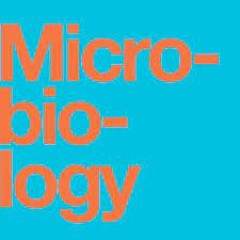
Microbiology : A Laboratory Experience
As a group of organisms that are too small to see and best known for being agents of disease and death, microbes are not always appreciated for the numerous supportive and positive contributions they make to the living world. Designed to support a course in microbiology, Microbiology: A Laboratory Experience permits a glimpse into both the good and the bad in the microscopic world. The laborato…
- Edition
- -
- ISBN/ISSN
- -
- Collation
- -
- Series Title
- -
- Call Number
- 579 AHE m
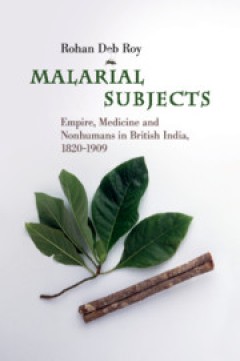
Malarial Subjects: Empire, Medicine and Nonhumans in British India, 1820-1909
Malaria was considered one of the most widespread disease-causing entities in the nineteenth century. It was associated with a variety of frailties far beyond fevers, ranging from idiocy to impotence. And yet, it was not a self-contained category. The reconsolidation of malaria as a diagnostic category during this period happened within a wider context in which cinchona plants and their most va…
- Edition
- -
- ISBN/ISSN
- 9781316771617
- Collation
- -
- Series Title
- -
- Call Number
- 614.532 ROY m
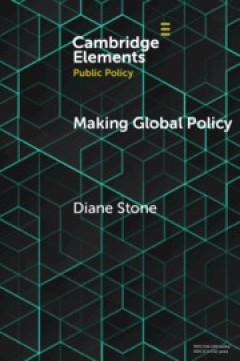
Making Global Policy
Global policy making is taking shape in a wide range of public-sector activities managed by transnational policy communities. Public policy scholars have long recognised the impact of globalisation on the industrialised knowledge economies of OECD states, as well as on social and economic policy challenges faced by developing and transition states.
- Edition
- -
- ISBN/ISSN
- 9781108661690
- Collation
- -
- Series Title
- -
- Call Number
- 320.6 STO m
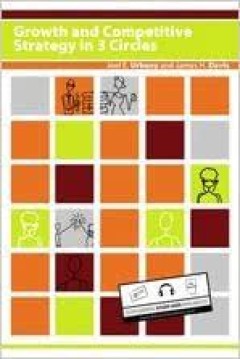
Growth and Competitive Strategy in 3 Circles
The 3-Circle model was developed over the past several years, initially in strategic planning for a university graduate program and in an executive MBA course designed to integrate the concepts of marketing and competitive strategy. Over the course of time, the 3-Circle model has been successfully used by hundreds of organizations throughout the world in establishing and growing their market po…
- Edition
- -
- ISBN/ISSN
- 9781453343623
- Collation
- -
- Series Title
- -
- Call Number
- 381 URB g
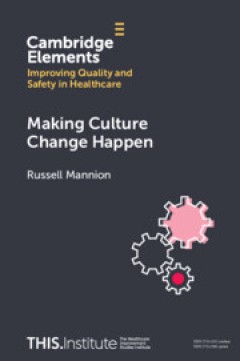
Making Culture Change Happen
Healthcare policy frequently invokes notions of cultural change as a means of achieving improvement and good quality care. This Element unpacks what is meant by organisational culture and explores the evidence for linking culture to healthcare quality and performance. It considers the origins of interest in managing culture within healthcare, conceptual frameworks for understanding culture chan…
- Edition
- -
- ISBN/ISSN
- 9781009236935
- Collation
- -
- Series Title
- -
- Call Number
- 362.12 MAN m
 Computer Science, Information & General Works
Computer Science, Information & General Works  Philosophy & Psychology
Philosophy & Psychology  Religion
Religion  Social Sciences
Social Sciences  Language
Language  Pure Science
Pure Science  Applied Sciences
Applied Sciences  Art & Recreation
Art & Recreation  Literature
Literature  History & Geography
History & Geography